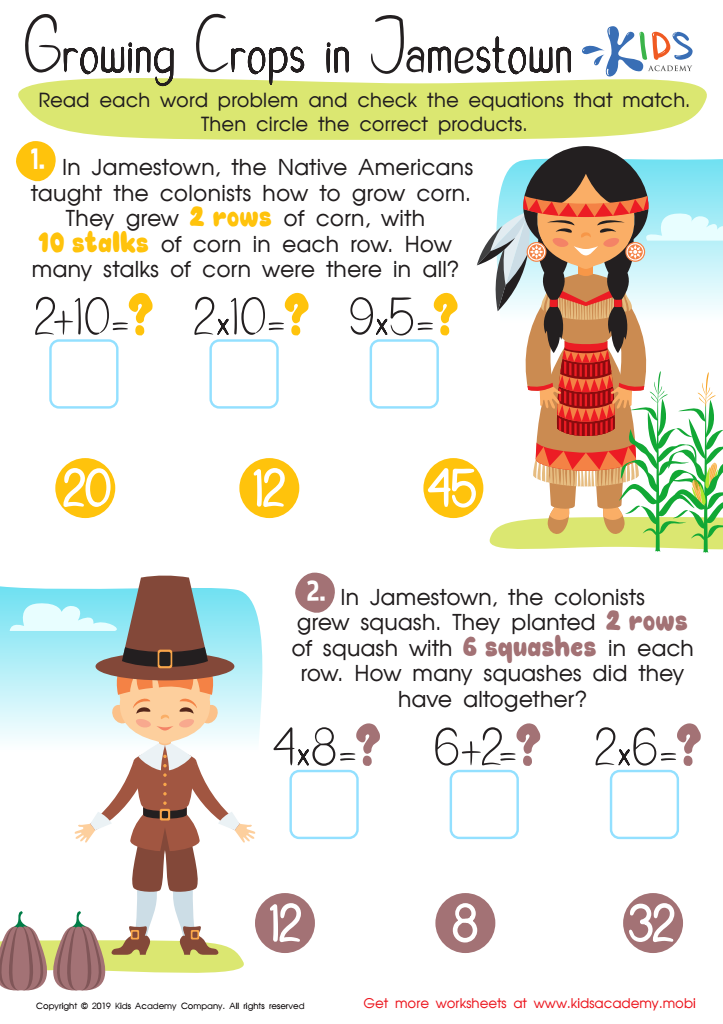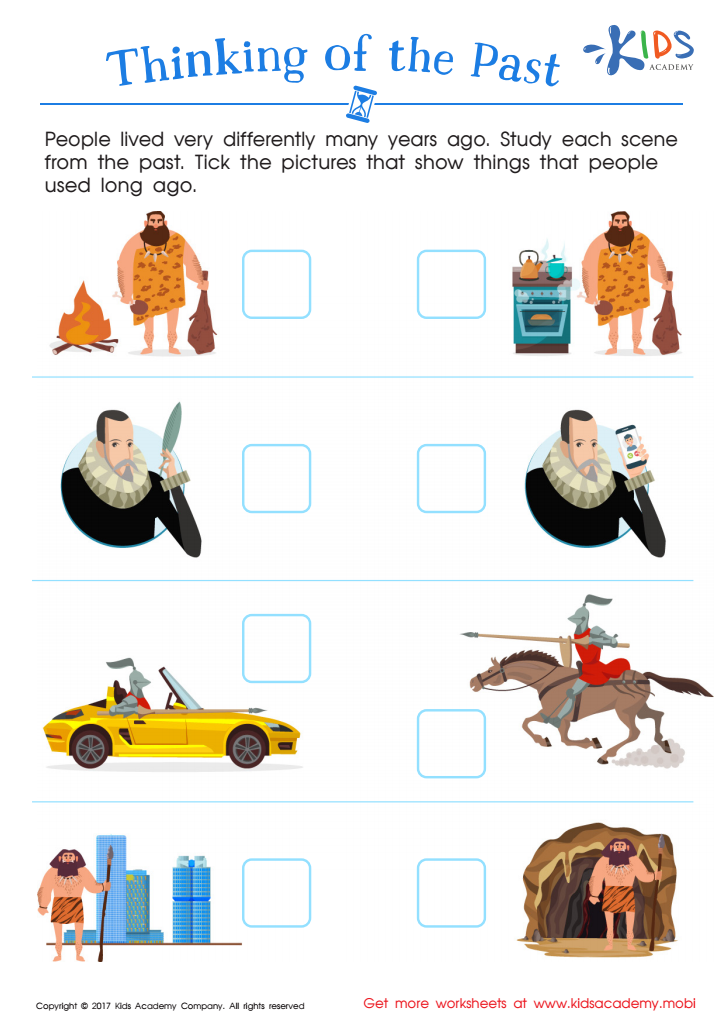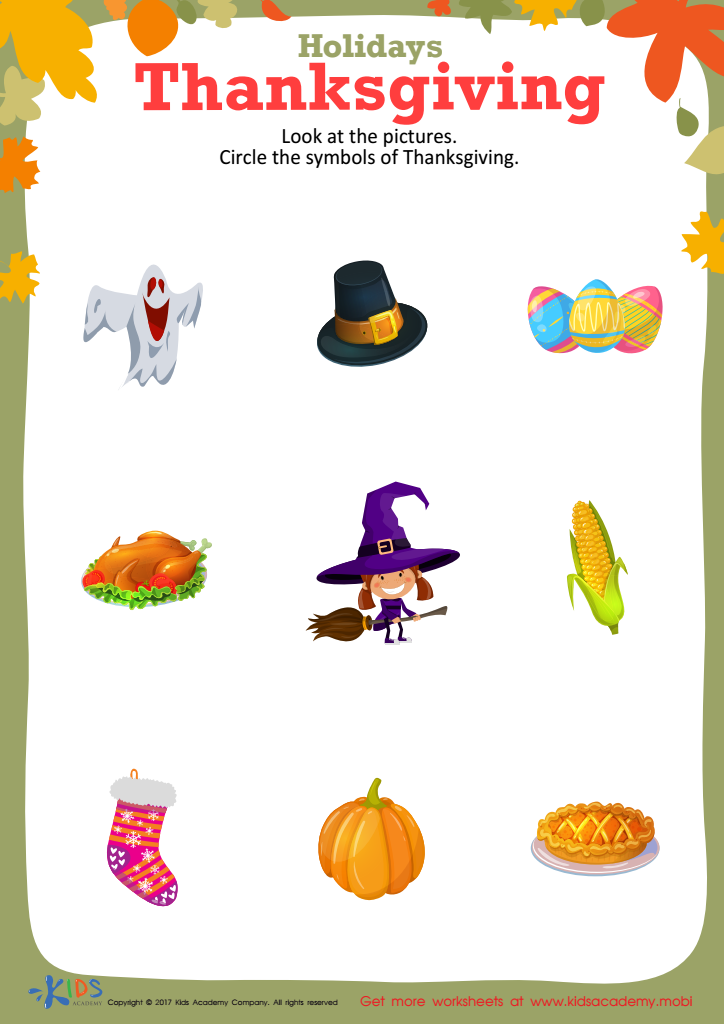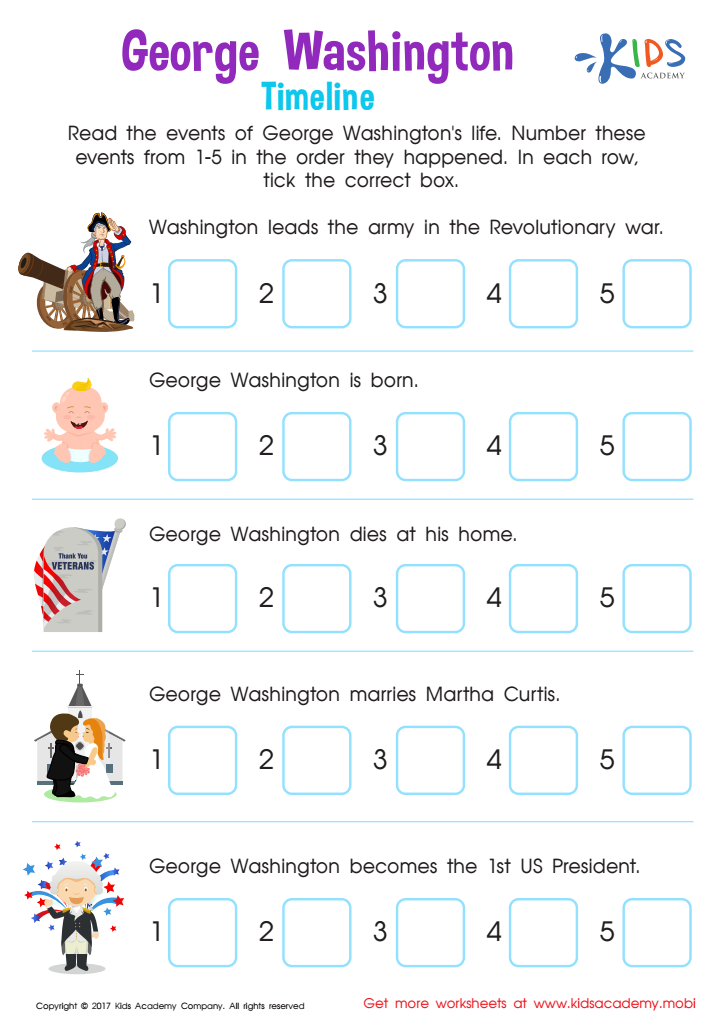Critical Thinking History Worksheets for Ages 3-4
4 filtered results
-
From - To
Enhance your child's cognitive development with our Critical Thinking History Worksheets designed specifically for ages 3-4. These engaging printables introduce young learners to the basics of history while fostering essential critical thinking skills. Through fun and interactive activities, children explore concepts of time, sequencing, and cause-and-effect related to historical events and figures. Our worksheets promote problem-solving and reasoning abilities, helping preschoolers think independently and creatively. Perfect for home or classroom use, these resources encourage early learners to ask questions, make connections, and develop a deeper understanding of the world around them. Start building a strong foundation in critical thinking today!


Growing Jamestown Worksheet


Thinking Past Printable


Thanksgiving Holiday Printable


George Washington Timeline Worksheet
Critical Thinking History for ages 3-4 is essential for nurturing young minds in today’s rapidly changing world. At this stage, children are naturally curious, eager to explore their surroundings and understand context. Introducing historical concepts even at a basic level helps them make sense of their experiences and develop reasoning skills.
By engaging preschoolers with simple historical narratives, teachers and parents can cultivate critical thinking abilities. When children learn about the past, they are encouraged to ask questions and draw connections to the present and future. For instance, discussing stories of notable figures or events can inspire them to think about values such as kindness, perseverance, and teamwork, fostering emotional intelligence as well.
Moreover, early exposure to history can promote cultural awareness, helping children appreciate diversity and understand different perspectives. This understanding is foundational for developing empathy, social skills, and adaptability—qualities vital for success in increasingly multicultural societies.
In conclusion, integrating Critical Thinking History into early education enriches cognitive development, instills a foundational respect for diverse narratives, and prepares young learners to approach problems and challenges thoughtfully. Therefore, it’s imperative for parents and educators to prioritize this component of early learning.
 Assign to My Students
Assign to My Students




















